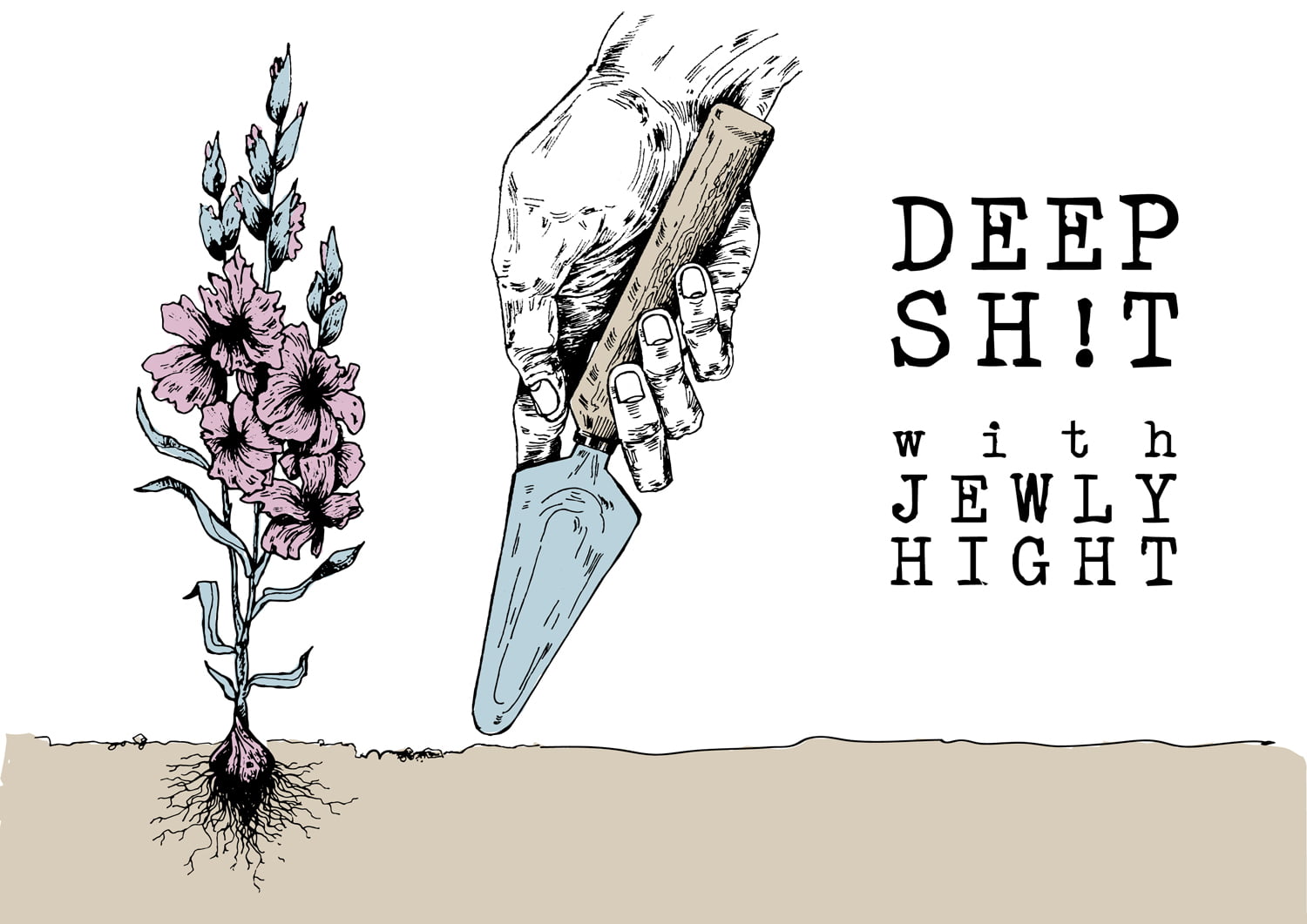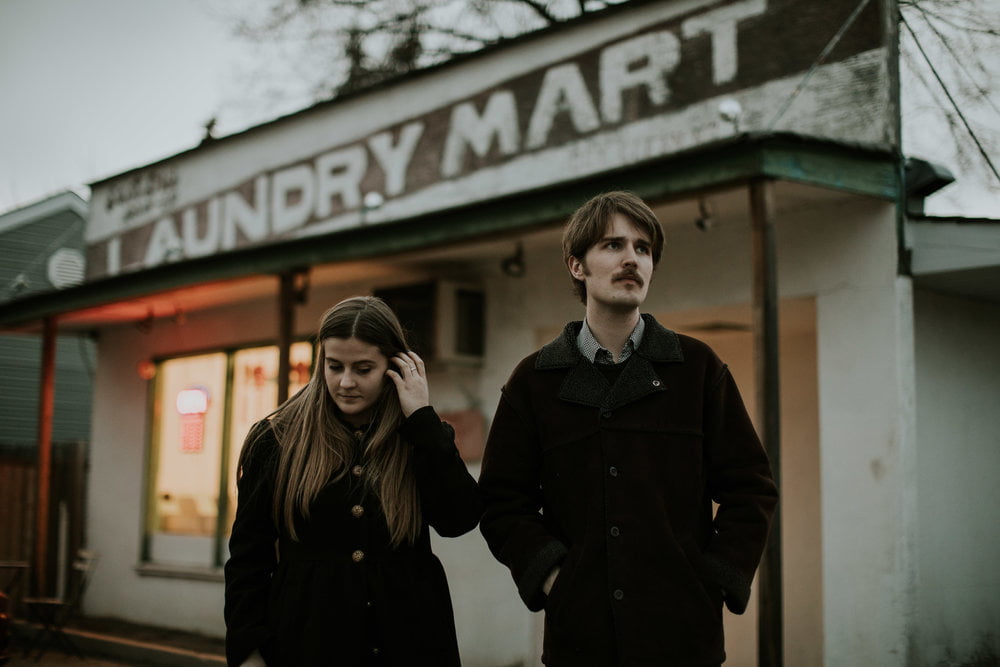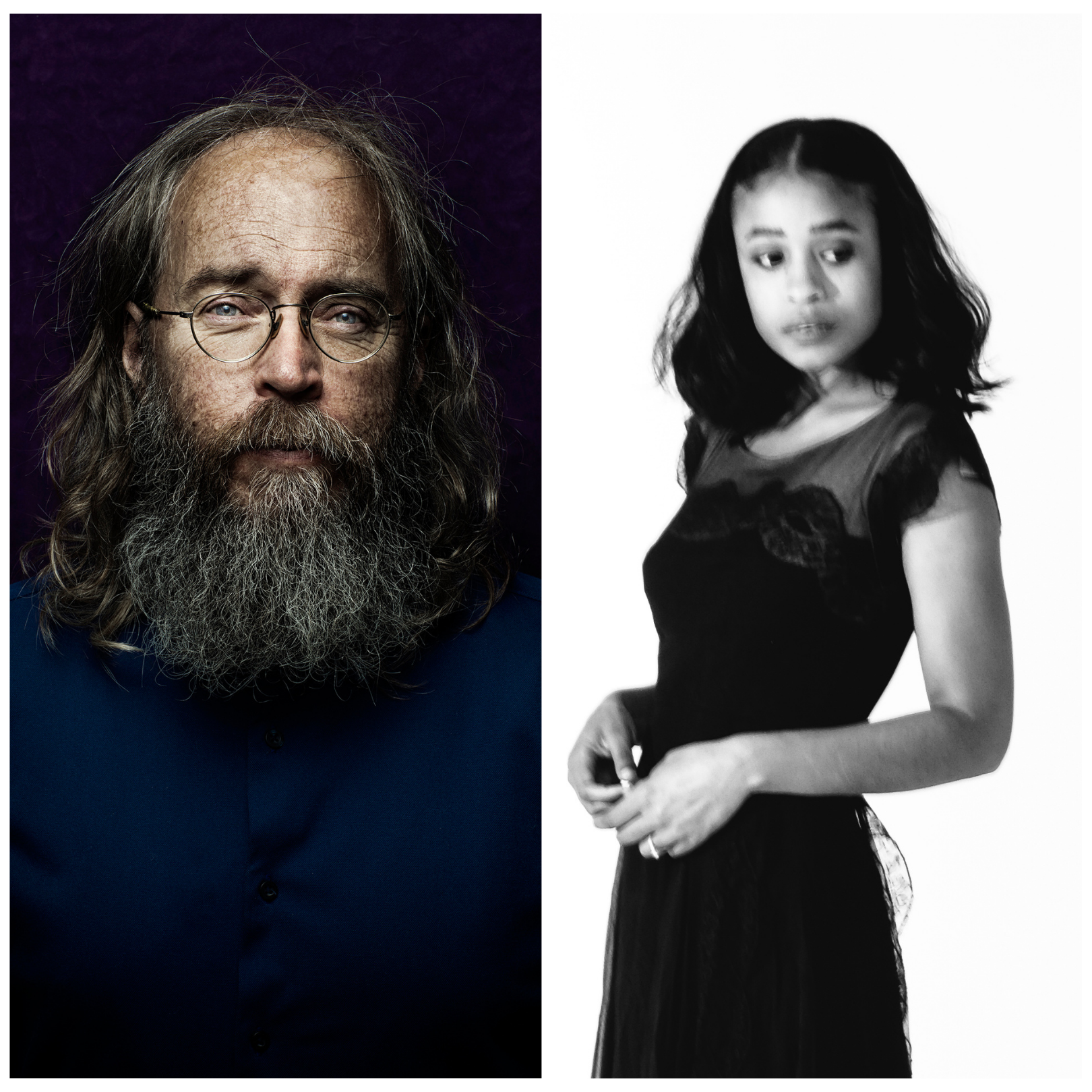If you’d happened into the bars where a young Elizabeth Cook and Darrell Scott and various members of their families played hardcore honky-tonk music for working people some decades ago — she in small-town Florida, he wherever his dad had most recently decided they should try to make a go of it — you would have witnessed their immersive education in earthy expression. All these years later, the bodies of work they’ve each built up as singer/songwriters command the respect of a different sort of crowd — theater- and festival-goers attracted to literary sensibilities and more elevated notions of artistry. Scott and Cook, though, have found ways to work the full range of their musical experiences into what they do, including their latest albums, her Exodus of Venus and his Couchville Sessions. They got on the phone with us to compare notes.
I’ve done several of these three-way interviews, and usually the two interviewees haven’t met and I’ll have to make the introductions, but I figured that wouldn’t be necessary in this case.
Darrell Scott: That’s true.
Elizabeth Cook: We go back to the Raffi days. Was it a Raffi track we did? It was some children’s project.
DS: Yeah, I think it was Raffi.
EC: And then you played on the Hey Y’all album [her debut on Warner Bros. Nashville].
DS: Yeah, I think it was one of your first records in town or something, back in the day.
EC: Yeah, 2002.
So this was a country tribute to Raffi?
EC: Yes! It’s been a thousand years. Let me think of what the song was. Did we do “This Little Light of Mine”?
DS: Yeah, that was it. You’ve got a good memory.
The last time I saw you, we were doing a round with Guy Clark, Buddy Miller, and me and you over at the Country Music Hall of Fame.
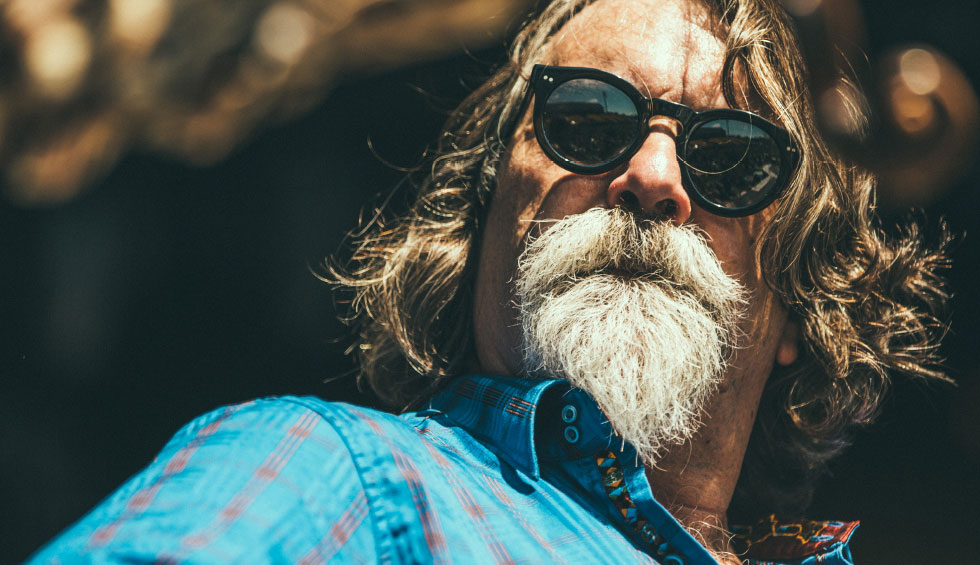
Darrell, I’ve heard the album that you produced for your dad, Wayne Scott, some years back, who really bore a strong sonic resemblance to Hank Williams, and Elizabeth, I’ve heard songs that your mom wrote for you when you were singing as a little girl, that old chestnut “Does My Daddy Love the Bottle?” being one of them. You both spent your formative years in down-home music but eventually found your ways into serious-minded singer/songwriter scenes. How do those seemingly disparate musical worlds and aesthetic values add up in what you do?
EC: Hmm, Darrell?
DS: Well, for me, I kinda feel I’m a giant sponge. I certainly grew up on country music to the full tilt. That’s all that was gonna be on the radio if you’re in the cab of the truck with my dad or my mom. My mom leaned toward, let’s say, Tammy Wynette and Marty Robbins, where my dad was more Hank and Johnny. They met at Merle Haggard, it seemed like. But that was where I started. And then church music gets in there, and it’s Southern Baptist stuff. And my family’s from Kentucky, so it’s got some of that. And then I’ve had the singer/songwriter periods of Joni Mitchell and Jackson Browne and Leonard Cohen and all that stuff, so all that gets thrown in. And I had a jazz-fusion period. And then I went to school and got an English degree.
To me, it’s all game in order to write a song that might want to go more bluesy or more honky-tonk or more confessional. Because I’ve loved so much stuff, it all shows up when it’s time to write something that’s leaning one way or another.
EC: I think that, like Darrell, coming up and hearing the hardcore honky-tonk music, that certainly established the ground base of what would be the rudiments of how I created — the chords that I knew and how they went together. So there’s that part. I didn’t re-emerge into the church scene until I was about 12 years old and we had stopped singing around the bars and stuff as much, and my dad was going through the initial phases of recovery from alcoholism. The Church of God songs were almost rockabilly. It felt like rock ‘n’ roll compared to the honky-tonk music. It was very lively — drums and organs and a lot of rolling around and tambourines. And then I think it took just growing up to realize that I was surrounded by this rich cast of characters and they were all storytellers verbally. None of ‘em wrote songs, but daddy did like to tell stories, and he was a character. And 10 half-siblings and all the people that came in and out of our lives.
After college and being torn over whether to pursue an English lit path or the mathematical business path — and choosing the mathematical business path in a rebellion period — that was almost like a sabbatical from music for me. And I was really trying to establish a different kind of life. But once I got out of that and came to Nashville is when I started learning that there was a Lucinda Williams and getting into deeper catalog Rodney Crowell and Nanci Griffith and Guy Clark, and finding out who Townes Van Zandt was, and hearing Steve Earle. And it was like, “Oh, there’s a sense of poetry that can be applied to this.” So there were the remnants of the musical style and then the sort of observation period, trying to learn and develop the poetry skill set and the storytelling skill set and marry all those things. And that’s still where I feel like I am now, on that path.
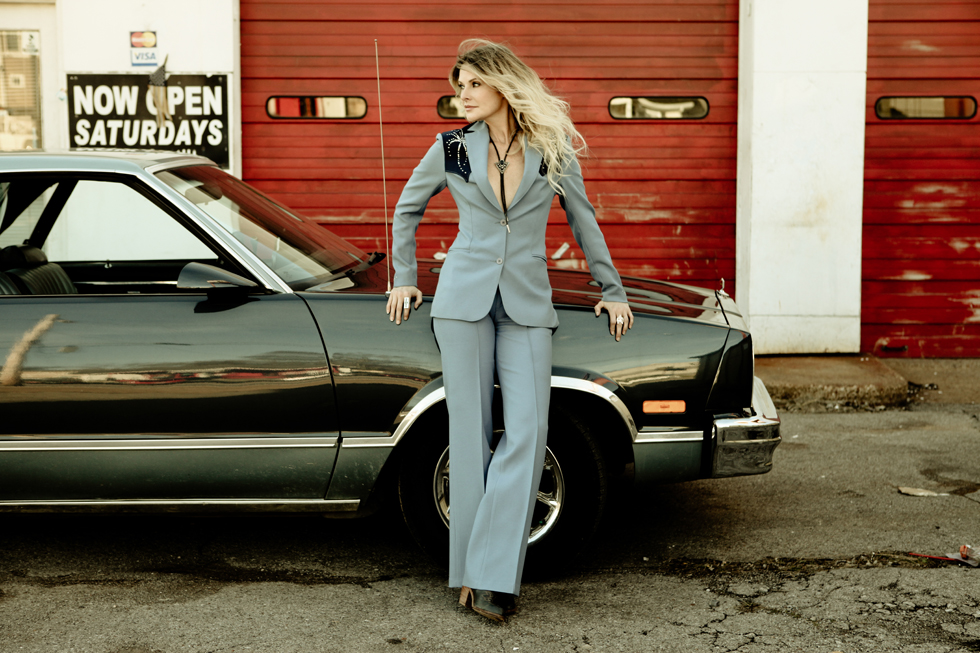
I wonder if either of you have ever found yourself challenging the way people define sophisticated and unsophisticated songwriting, since you’ve been intimately acquainted with this whole range of “highbrow” and “lowbrow” sensibilities and don’t view it as simplistically as some other folks might.
DS: Well, to me, that distinction comes down to the song. If there’s a song that’s tapped on my shoulder that wants to be absolutely simple, wants to speak from a character who has an eighth grade education, I figure my job is to facilitate, so to speak, or just let that song come to life the best I can with what started in the first place, as opposed to me sitting there saying, “Hey, I can’t write this song with that language. I’m gonna have to shift it over somewhere else.” That’s not my job. My job is to follow through with the initial inspiration and, if that inspiration wants to be coming from a farmer or an auto mechanic or a steel mill worker or something like that — and those are folks and characters I know, absolutely — then I’m gonna follow through with that. And the next song might be more poetic or more worldly or something, then my job on that one is to be that way. So I feel the songs sorta tell us what to do, as far as whether it’s sophisticated or a little more jazzy or a little more dark or a little more gospel or a little more anything.
EC: I think so, too. Music can do so many different things, you know? There’s music to boogie to, music to party to. There’s music that’s engaging on a more sophisticated level, and that’s where, to me, the more intricate lyric and storytelling and the more original way that you can say something [come in], even if it’s from a character that maybe you’ve heard speak before. For me, I guess I’m just saying it totally depends.
I’ve really enjoyed lately getting more into trying to find different jumping off points. If I’m wanting to write a song like this song “Evacuation” that’s on the new record about a lady in New Orleans … I decided to just immerse myself in learning about voodoo culture, and in [learning] that terminology and ideas, the story gets a little bit richer. So the process of digging deeper is what’s been exciting to me and a way to try and grow my writing.
As I listened to Exodus of Venus and Couchville Sessions and revisited some of your previous albums, I was thinking about the introspective approach that I’ve heard from other contemporary singer/songwriters, who tend to be up in their heads and disengaged from their bodies. That’s not at all what I get from your work. You can each get really expansive with the stories you tell or the experiences and settings you describe, but always also acknowledge physicality. Is that something that either of you are conscious of?
DS: You go ahead, Elizabeth.
EC: No, you go. We’ve got a little groove going.
DS: I’m conscious, and it’s not really while I’m doing it, but afterward. I look at my work and see that it’s sort of what you described there. Another way of putting it, for me, is linear — I feel like a lot of my writing is linear. I wish I weren’t so literal, to tell you the truth. I see that quality show up a lot in my writing.
You were describing some other type of singer/songwriter — folks who seem more disconnected. I’d love to be more disconnected sometimes. I just don’t get to get there. Not ‘cause I don’t want to. When a song like that does come along, I’m like, “Hallelujah. I got one, at least.” You know? There’s a slight different between a groove and a rut. I appreciate that linear quality in my writing, when the song’s appropriate, but I’d sure like to bust out and find the songs that allow me to not feel like I’m repeating a version of myself. I’d hate to think that I’m repeating myself, but I do see that linear quality in my writing and I’d like to bust it up. If you guys have any ideas how I could do that, let me know.
[All Laugh]
EC: Immerse yourself in voodoo culture.
No, I certainly don’t know. I’ve gone through phases of ideas and theories about it where I’m like, “Well, that’s kind of a cop-out just to write about the moon and the river, because you can totally bullshit your way through that.” I want to write rich stories and make them rhyme. I think that feels more challenging; it feels more interesting. If you can learn to do that well, I almost think it’s more rare than any other. So I follow that path and try to master that and, in doing that, sometimes I feel like, “Well, this is trite, and I wish I had something original to say about the moon and the river.” I think I’m also, like Darrell, trying to figure out how to crack that nut, how to maybe be sometimes a little more metaphorical or whatever you want to call it, and still be original and interesting and sophisticated and all those things that I feel like we’re challenged to do.
Darrell, it’s really interesting to hear you describe your sense of how your writing unfolds as “linear.” I don’t think I would’ve chosen that word. What I’m trying to get at is that your songs often operate on multiple different layers — you make the listener aware of what’s right in front of them, what can be seen with the eye, but also all these subtexts, stuff that’s felt and not said. For example, when I listen to “Waiting For the Clothes to Get Clean,” I see the people in the laundromat, their physicality, but I also feel the complex emotions they’re mired in. What does it take to work all of that in there?
DS: Well, that one came in a number of ways. One was just trying to describe that couple in that song. They obviously have major problems, you know? The whole thing is about a conflict. And they’ve just gone to the laundromat, so it’s an hour-and-a-half, but the shit they throw on each other just in something as simple as washing your clothes, it tells everything about how they don’t have it together. They just live in different worlds, but they’re in the same car, the same laundromat, and share the same bed. So that one, to me, was kind of a character study. Sometimes I’ve been embarrassingly too much like the male in that song, which I despise that part of me. But men … sometimes it takes them a long time to get out of whatever they’ve seen their parents do or whatever their male bravado crap is.
When I say linear, I mean, for example, that songs goes from the beginning of the laundromat experience to them driving back. Literally, it goes from unloading the clothes to now they’re driving back home after the hour-and-a-half or so at the laundromat. So that’s what I mean by linear: This happens, then that happens, then he said that, then she said that.
EC: Sort of like chronologically in time.
DS: That’s right. Yeah.
What goes on in that song, it points to all the psychological stuff between the two characters. So I hear what you’re saying. To me, the linear in that song is that it’s a real crisp timeline.
Elizabeth, you mentioned that you’ve been trying to find different starting points for your songwriting. You’ve always painted really evocative, detailed pictures in your lyrics, but I do pick up on some new elements in this batch of songs. In songs like “Exodus of Venus” and “Slow Pain,” it’s like you’ve pared down your lyric writing to this intense sensory stuff with dark blues shadings. That’s my description of it, but I wonder how you’ve experienced it and what got you there.
EC: You always get that cliché question, “Which comes first, the music or the lyrics?” Those were examples of ones that were initially music-driven out of the gate and the lyrics followed. When I’m writing to an emotion that’s already established in a sound, it’ a little more freeing. There’s a little bit less responsibility on the lyric, if that makes sense. I didn’t have that before, and a lot of that is because of writing with the producer for the record, Dexter Green, who’s a great guitarist and way into tones and pedals and all this stuff. So it’s been a different jumping off point instead of some sort of dense narrative coming out of my journal.
As you’ve been performing this material live, how have you seen people respond to hearing different stuff from you?
EC: I tell you what, I’m really encouraged and relieved, so far. And it’s still early, but we’re pretty much running the board. It’s been very positive. I was worried that it would be, “Well, this isn’t as country. This isn’t as sunshine-y.” But everybody’s been enjoying the exploration of the darker side and what I hope is an evolution to the writing. So far, so good. Only a couple people said, “You’re keeping it country, aren’t ya?” And I’m like, “Well, not really.” I love country music. I love it. But I don’t care if something I’m writing is country or not when I’m writing it. I just don’t care.
I feel like that’s probably a perspective on writing that you could identify with, Darrell.
DS: Yeah, very much. When it’s time to write, it all gets set aside. If we’re doing it right, all the attention goes to this song, this inspiration sitting in front of us. Fantastic, if it’s country. Fantastic, if it doesn’t rhyme. Again, I’m really trying to do what the song is telling me to do. And that may sound a little, you know, like it’s not exactly me writing it; I’m certainly there, but I’m paying attention to the song. Wherever the song is going, I hope to bring whatever I got to the table to help it to come to life. My country music background can sit at the side, if it doesn’t need any of those skills. I don’t feel like I have to interject anything.
Something else I appreciate about each of your music is that you have ways of drawing together the sensual and the spiritual. You have songs that explore the power of physical connection, that don’t beat around the bush about sexual tension. Darrell, your song “Come into This Room” comes to mind. Elizabeth, I heard that kind of power in “Straightjacket Love” or, on the more playful side, in “Yes to Booty.” You each also have a way of grounding bits of spirituality in the body. Through that blurring of lines, are you sort of letting us in on the way you experience the world?
DS: Well, for me, it’s part of that quality of telling the truth in the songs. If we’re sensual beings and if we’re sensual-minded as we walk around the planet — and I am — that has to enter in. So does the spiritual, because that’s how I walk around the world, too. So I try not to be ashamed of that. Depending on our background, you can be taught to hide that, and it’s scary, and you’re sure as hell not supposed to write a song about it. But, to me, that’s just part of the deal of breaking away from the stuff that didn’t work from childhood. Country music worked; I’ll take that. And maybe the Southern Baptist stuff didn’t work so well, or didn’t stick. So I can leave that one behind, but take away the general community of my church background or the general idea of the great gospel songs or the energy of people all feeling it together. To me, I walk around with the sensuality and the spiritual, and it would be no wonder how it would show up in songs. They’re part of what I carry around.
EC: I sort of think it’s inherent, for me, in music period. It’s like music taps into all those things, and that’s why I relate to it. It taps into sensuality. It taps into spirituality. That’s why it’s almost like an awakening when you connect with it. So I think it’s inherent in making music that those things would be present, if you’re truly succeeding in being connected to it. Those things would hopefully, naturally show up. I think that’s probably why.
That’s my best guess.
That’s a good guess.
Illustration by Abby McMillen. Elizabeth Cook photo by Jim McGuire. Darrell Scott photo courtesy of the artist.
